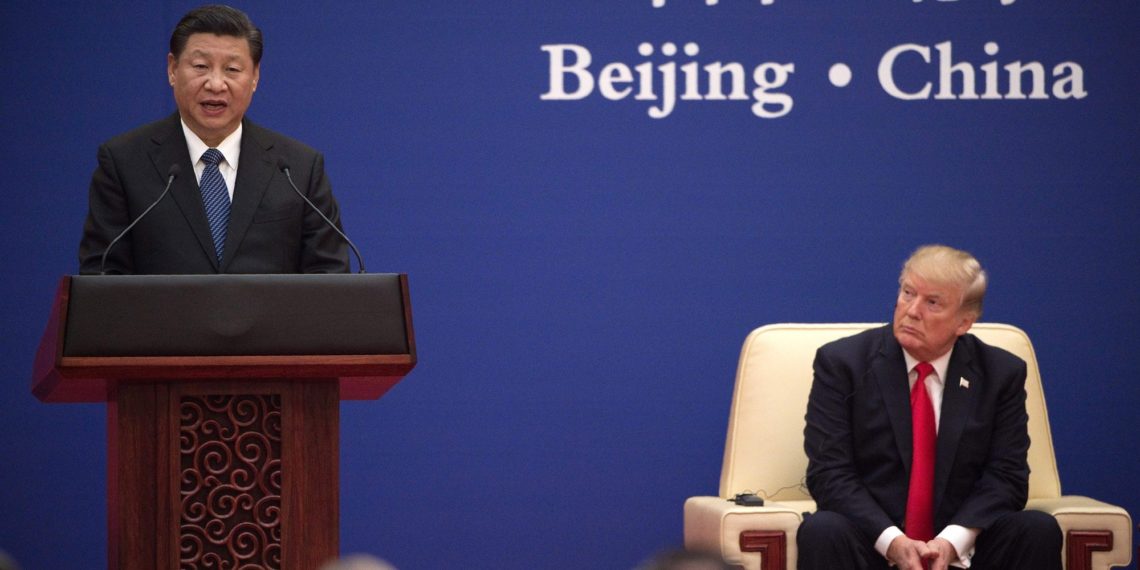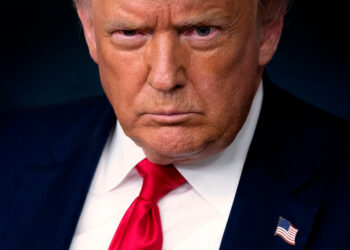China’s May 3 pullback of agreements made by Vice Premier Liu He in trade negotiations with U.S. officials indicates that President Xi Jinping has faced a sharp domestic pushback to his trade strategy with Washington.
Chinese Communist Party politics have entered the fray and this development has made apparent that Xi, despite his sweeping power consolidation and his last year elevation to president for life, faces constraints to his political control in China.
It’s becoming clear that powerbrokers in Beijing viewed the previous draft trade agreement as being too accommodative to a foreign power and as a slight to national pride. At present, there is no agreement within China on a way forward in the trade war.
Division in China
The disunity in Beijing may force Xi to hunker down and opt against Washington’s requested concessions, accusing Donald J. Trump of unrealistic demands and blaming him for the trade war’s fallout.
The Chinese media’s reaction has been defiant, indicating that Beijing is in it for the long haul and is prepared to escalate if necessary. Press reports have been replete with calls for the Chinese people to unite against Washington. For good measure, old movies about the pivotal role Beijing played in the Korean War are currently airing on TV to remind Chinese nationals of a time when China stood up to America.
Further complicating Xi’s hand is the struggling Chinese economy. Decades of overspending by the Chinese state is beginning to have its effect with China estimated to have an eye-watering debt-to-GDP ratio ranging from 250 to 300 percent.
These negative economic headwinds could bode poorly for Xi in his negotiations with a Trump administration that is heading up a strong economy with unemployment at a 50-year low and economic growth at 3.2 percent in the first quarter.
Trump Envisioned Trade Deal
Thus far, Trump’s stated objectives in a trade deal remain unchanged. He wants to help U.S. corporations with market access in China, increase American exports, put in place protections against Beijing’s forced technology transfer policies, and address the advantages that Chinese state-owned enterprises have benefited from for decades.
Trump is buoyed by the bipartisan agreement that the time has come for the U.S. to crack down on perceived unfair trade practices by China. Amid the support for his get-tough approach to China, Trump has been careful to communicate to farmers and others in his political base that he is mindful of the effects of his administration’s tariff policy on Chinese goods, even going so far as to provide federal relief to farmers.
Our Farmers deserve this, they are GREAT! https://t.co/0dFkx0vUkl
— Donald J. Trump (@realDonaldTrump) June 13, 2019
Some of Trump’s advisors are advocating for a supply chain that has fewer ties to China, calling for a distancing from Beijing. However, Trump has shown signs that he may not be willing to decouple the two economies and is open to accommodating some of Beijing’s interests, Huawei in particular, saying that the “dangerous” company could be part of “some kind of a trade deal.”
One indicator that deserves attention is whether or not President Trump attends the G20 summit in Osaka, Japan at the end of the month and if he meets President Xi on the sidelines. Such a meeting, if it were to take place, could hold promise that both sides are committed to a deal. If such a meeting does not take place, prospects for a deal decrease.
Going Forward in US-China Trade War
While being mindful of domestic political concerns, Xi may be taking a wait-and-see approach as he tries to determine what Trump’s intentions are going forward. China is now comfortable in its own skin, and some time ago opted for its authoritarian capitalism framework over that of the liberal model that is part of today’s international economic system.
Beijing believes that it has been well served by its indigenously-created paradigm. Accompanied with its Belt and Road infrastructure initiative involving over 150 countries, China is playing the long game and deems that it is creating a new economic model that can serve as an alternative to what it sees as an archaic U.S.-led system.

As China no longer seeks the approval nor the acceptance of the Western rules-based order, it is becoming increasingly difficult for Washington to compel it to change its trade practices and economic model, both of which have benefited Beijing for over three decades.
Despite enjoying bipartisan support for the trade war and heading up a strong economy, Trump will struggle in bringing about his desired changes to Beijing’s way of doing business. Look for his hardline approach towards China to continue as Xi further appeals to nationalism against U.S. “bullying.” These dynamics mean that it will likely be some time until Washington and Beijing make progress on anything, much less resolving their intractable trade disputes.
Disclaimer: The views and opinions expressed here are those of the author and do not necessarily reflect the editorial position of The Globe Post.























